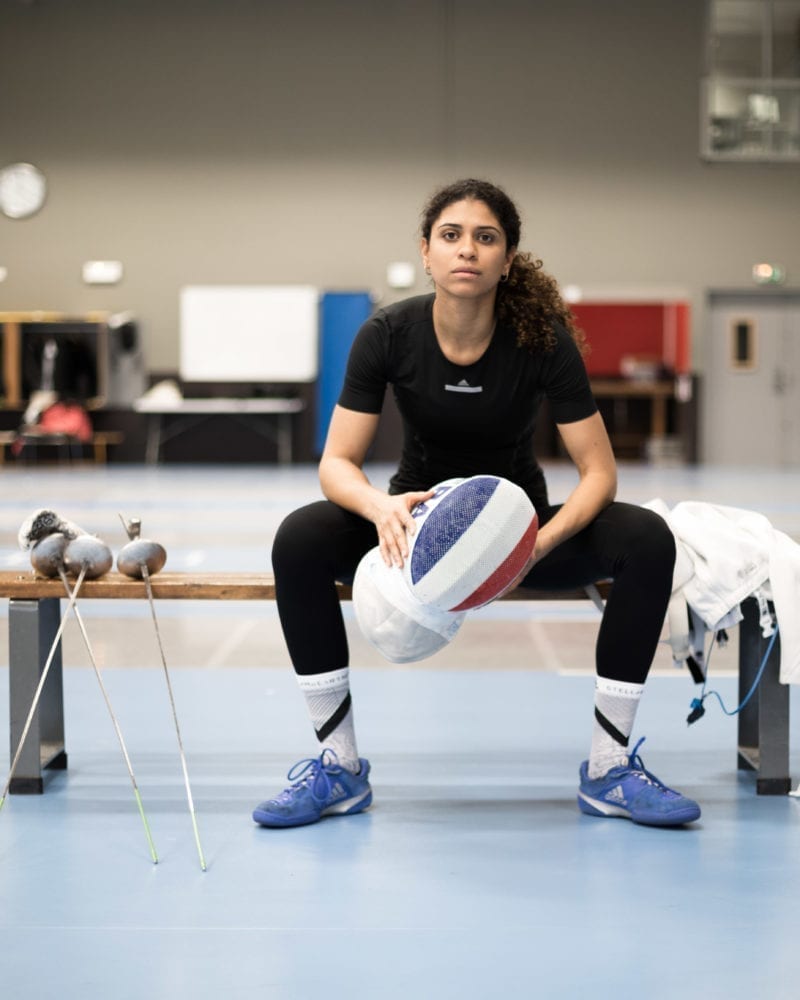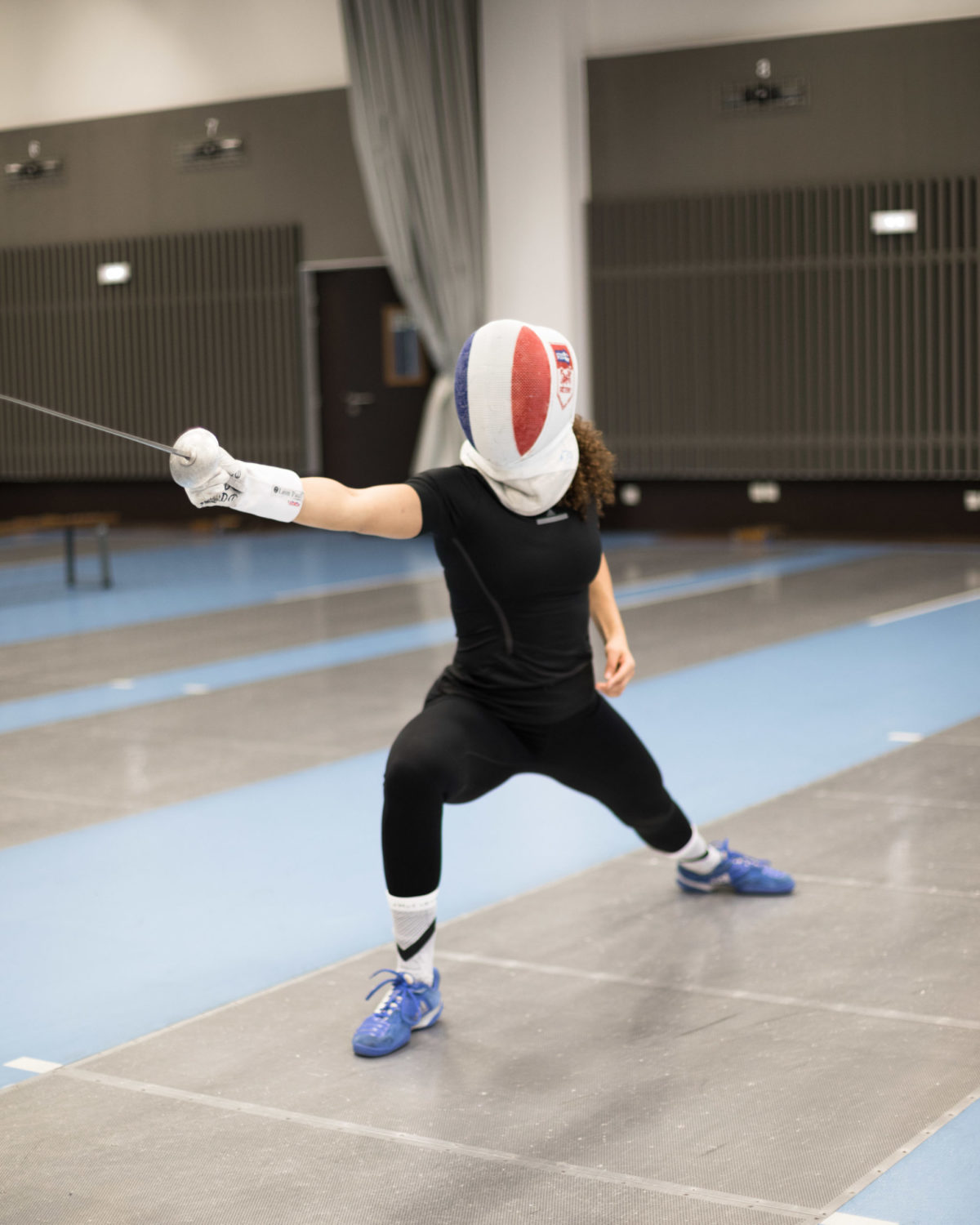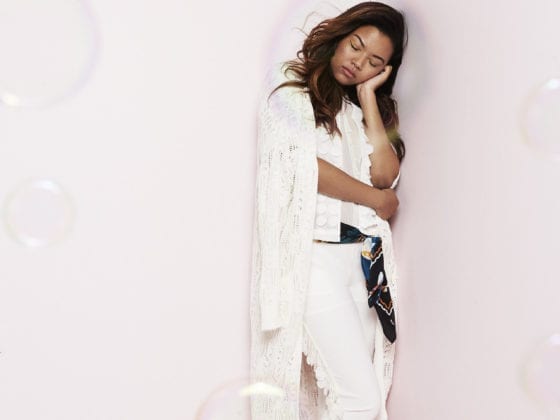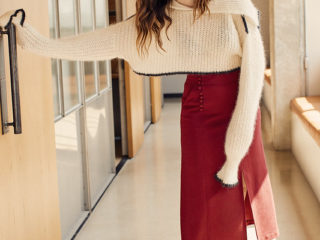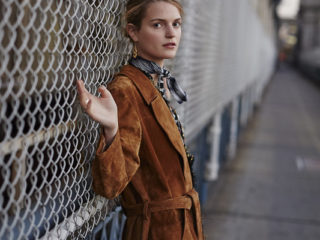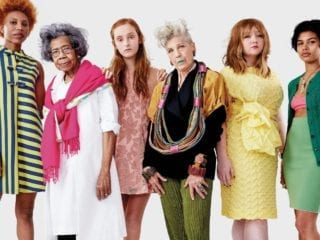“Real Women, Real Work” is a Darling series about everyday women who work in various fields including business, entertainment, science and education. We want to get to know the WHY behind their WHAT and get an inside look into different industries.
For an Olympian, the wait for the next big match is four years. For renowned French fencer Ysaora Thibus and the thousands of other athletes set to compete in the 2020 Olympic Games in Tokyo, it’ll be five. With the Games now postponed to July 2021 due to the coronavirus pandemic, Thibus’ Olympic medal dreams are on hold.
In early March, she traveled to Los Angeles for a Grand Prix fencing event, but after arriving, she quickly found out the event was cancelled due to coronavirus and that her fencing gym and training gym were both closed. Thibus is now stuck in L.A. due to travel restrictions. In the meantime, she is working out and keeping in shape as best she can. Despite the setbacks and the unknowns facing the sports world, Thibus has made it clear—more important than competing is the safety of people and solidarity worldwide to fight this illness.
More important than competing is the safety of people and solidarity worldwide to fight this illness.
Her spirit of tenacity and resilience is not new. Thibus first got started in fencing at the age of 7 in Guadeloupe. As soon as she got a taste of competition, Thibus loved the sport. She knew she was a fighter and has been competing in the sport ever since. Throughout her career, she has won two gold World Cup medals, one silver World Championship and one gold Grand Prix medal (just to name a few), and she’s just getting started.
Darling got to sit down with Thibus to learn more about her journey in fencing and how she hopes to use her passion for the sport and her platform to inspire and empower women around the world.
Why did you decide to enter into the sport of fencing?
I grew up on the small French island of Guadeloupe in the Caribbean. As a young girl, I was taking classical dance, when one day my mother decided to take my younger brother to a fencing class. I was dragged along to the first practice as siblings usually are.
After arriving in the gym for the first time I was fascinated. I begged my mother to join the class. From that day on, I was a fencer.
What was it like transitioning from dance to fencing when you were a little girl?
I have always thought that fencing and dance had many parallels. The footwork, the rhythm, the technique—all of these creative and aesthetic aspects from dance were alive in fencing.
Yet, fencing gave me freedom to express my creativity and my competitive spirit. I practiced dance and fencing alongside each other for seven years until my passion for fencing grew and overtook all my other hobbies.
Fencing gave me freedom to express my creativity and my competitive spirit.
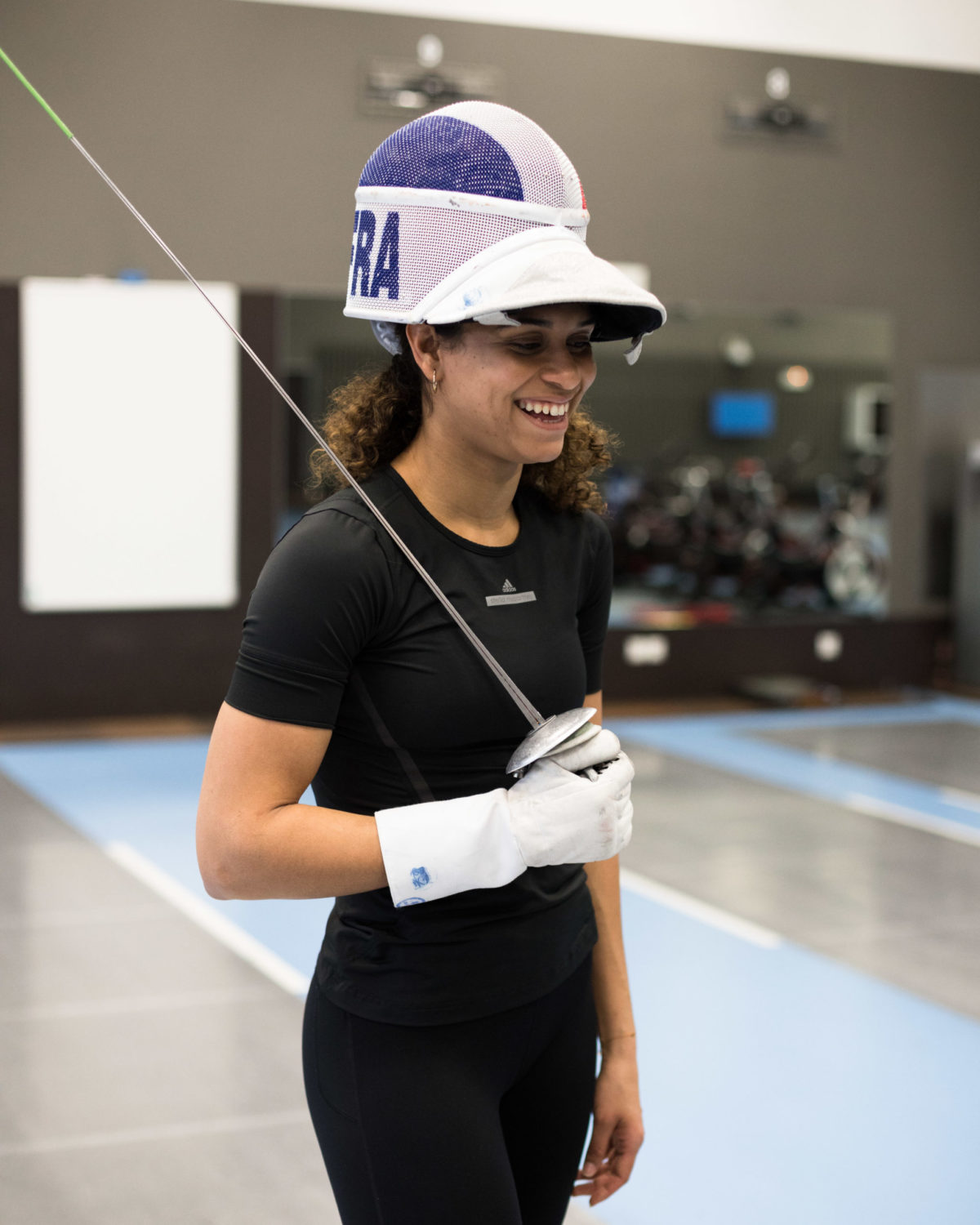
Did you or your family expect for you to take to fencing so quickly?
Well, I don’t think that I took to it very quickly. My parents were not involved in pushing me to fence as much as they were in supporting me as my aspirations became greater and greater.
I was not the greatest as a child, and I cried a lot after matches and competition. I may not have been the most talented. However, from the beginning, I worked hard and wanted to win.
From the beginning, I worked hard and wanted to win.
Were there any stereotypes about fencing being a man’s sport? If so, how did you deal with that?
As a child I always trained with boys. It wasn’t until I got older that I realized women were looked at differently as athletes. Many times on the French team, I would hear comments about how terrible it is to watch women’s fencing because women’s fencing is not the same sport as men’s and that it is nowhere near as difficult.
It wasn’t until I got older that I realized women were looked at differently as athletes.
When I came to America, a coach told me I would never understand fencing fully because I’m a woman. I heard these comments so much that they started to feel true. Yet, as I became stronger and more confident, it became important for me to show the girls who look up to me that they are equal.
How do you prepare for a match? What does your routine look like the week of a match?
Right before a competition, there is less training so you don’t overwork the body. Practice during that time is more about quality and intensity.
A few days before, I switch into competition mode, focusing on getting into the right headspace. The most important thing the week before the competition is your mentality.
After winning so many medals, how do you stay motivated to keep progressing?
To stay motivated, I focus on performing at my highest level and pushing myself. I’m very competitive, but it’s not about winning or losing. It’s about pushing myself to be better than I was before.
It’s not about winning or losing. It’s about pushing myself to be better than I was before.
You are dating American foil fencer Race Imboden. What is it like to be in a relationship with a fellow fencer? How do you keep each other motivated?
It’s not always easy, but we understand each other. We can relate to what the other person is going through. I learned a lot about the sport while watching Race, and I understand that our processes are different. I draw strength from us working together toward the same goal.
Race truly believes in me, and that is what helps me the most. The truth is we need different things, and sometimes, that can be as simple as space to be by myself. As an athlete, identity and confidence is born from within. It’s important to have time with yourself to nurture that.
What were your thoughts on Race taking a knee at the Pan Am Games?
It didn’t surprise me. Race is very open about his convictions with those around him. I saw this growing change in him to use his platform to speak up for causes that are important.
I thought it was brave, and I was honestly just shocked by the criticism that followed. I wish I could have been there with him at that moment.
You were set to compete in the 2020 Absolute Fencing Gear FIE GRand Prix in Anaheim and the 2020 Olympics. How has the outbreak of COVID-19 affected you competing?
Over the last few weeks, a lot has happened. First, my competition in Anaheim was cancelled. Then, the Olympic games were postponed to 2021, but both were the right thing to do.
Sports have to take a backseat right now and the focus needs to be on helping those in need. We, as athletes, need to set an example by staying home and protecting those who are high-risk. We are all in this together.
Sports have to take a backseat right now and the focus needs to be on helping those in need.
What have you learned from the matches you have lost?
You recently got your business degree. What do you hope to do with your education?
As a professional athlete, I am my own business. Getting my degree equipped me with the skills to approach my athletic career like a business and make decisions that will help me grow.
I was the first French fencer to create my own training team outside of the team provided by the federation and do most of my training outside of France. This decision was driven by a key thing I learned in business school— that opportunities for major growth often exist outside of what already exists. I had to go outside of what I knew to get closer to the person I hope to become.
Why is it important for you as an athlete to advocate for women? How do you do so?
I used to think that my achievements alone would inspire young girls. As I’ve gotten older, I’ve realized that’s not enough. To really make a difference, I have to use my voice. My achievements enable me to have a platform to speak up for equality in sports.
To really make a difference, I have to use my voice.
I want to fight for equality for women in and outside of sports. Sports reflect the way we see women in society and that has to change. We are paid less, and we are treated as less. We are not seen as worthy of more. This has to change, and it will change.
I’ve started to work with multiple associations to support programs and initiatives that open doors for women, and I encourage peers of mine to do the same. The more of us who rally behind women, the sooner things will change. We have the power to change how female athletes are treated.
What advice would you give to your younger self? What advice do you have for girls interested in the sport?
The advice I would give is to “enjoy the game.” I know this sounds cliché, but enjoyment of the game is the one thing no one can take away from you, no matter your gender. Your relationship with a sport and your love of it is something no one can touch. It’s yours. Nothing can change that.
For more on Ysaora Thibus, follow her journey to the 2021 Olympics on Instagram.
Images via Aurore Fouchez

